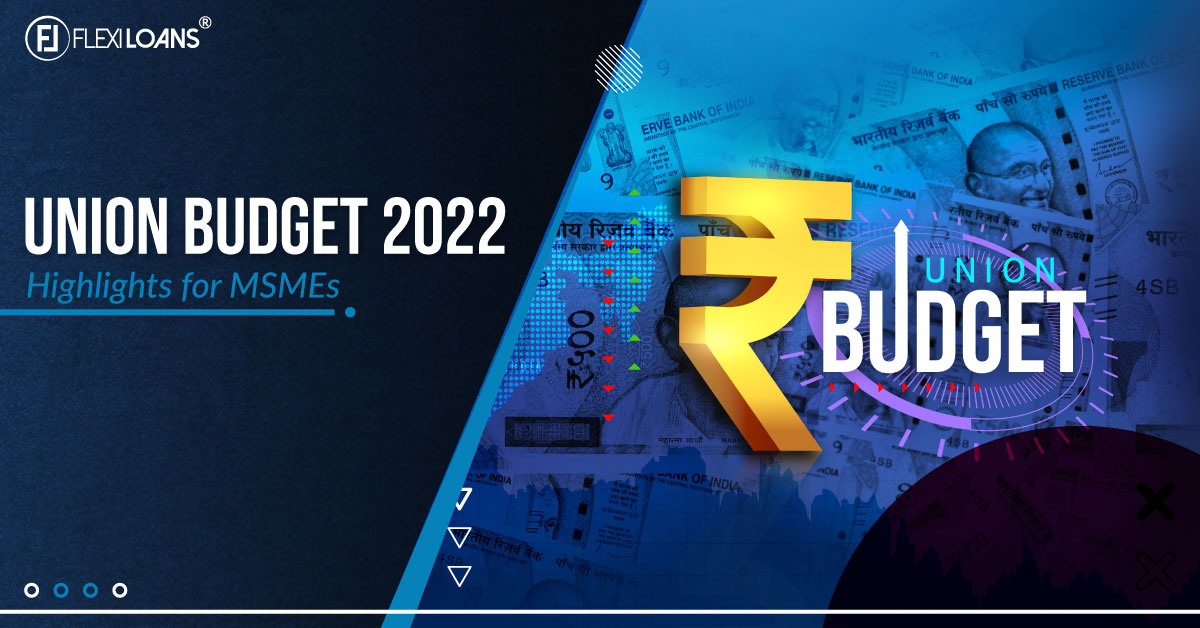Feb 03, 2022
Feb 11, 2022

Nirmala Sitharaman, India’s Minister of Finance and Corporate Affairs delivered the Union Budget 2022 on February 1, 2022. We’ve compiled a list of the most important lessons for ecommerce enterprises, startups, entrepreneurs, and small and medium-sized company owners from her simplest union budget 2022 expectations.
Additionally, the Union Budget 2022-23 provided an overview of India’s GDP and stability during the COVID-19 period. Additionally, it recommended additional allotments for nearly every industry to foster growth on the subcontinent. We shall examine some of the highlights of the Union Budget for the fiscal year 2022-23 in the following post.
What To Expect From Budget 2022: Announcements for MSME Budget
The Udyam, NCS, e-Shram, and ASEEM portals will be connected, and their scope expanded to include portals holding live, organic databases that provide B2C, G2C, and B2B services. These services will include skill development, credit facilitation, and recruiting, to further formalize the economy and expand entrepreneurial opportunities for everyone.
The Emergency Credit Line Guarantee Scheme (ECLGS) would be extended till March 2023, and its guarantee cover will be increased by Rs.50,000 crore to a total of Rs.5 lakh crore, with an emphasis on hospitality and associated industries.
With the infusion of necessary cash, the Credit Guarantee Trust for Micro and Small Enterprises (CGTMSE) plan will be revitalized. It would increase loan availability to micro and small businesses by Rs.2 lakh crore and create new job possibilities.
The Raising and Accelerating MSME Performance (RAMP) plan would be implemented over five years with a budget of Rs.6,000 crore. The RAMP will assist small and medium-sized businesses in becoming more competitive, resilient, and efficient.
Union Budget 2022: Startup Announcements
The startups will be pushed to facilitate ‘Drone Shakti’ through a variety of drone-as-a-service applications (DrAAS). In this context, the requisite skill-building training will begin in chosen ITIs across all states.
Defence R&D will be made available to startups, industry, and academia, with 25% of the defence R&D budget reserved for this purpose.
Through NABARD, a blended capital fund will be facilitated to finance agriculture and rural firms related to the farm product value chain. The fund would be established through a co-investment approach. The activities for these firms will comprise machinery for farmers on a rental basis at the farm level, support for FPOs, and technology, including IT-based support.
Tax Breaks for Startups in the Union Budget 2022
Before 31.03.2022, eligible startups received a tax benefit for three consecutive years out of 10 years following their establishment. Given the COVID epidemic, the Finance Minister recommended extending the qualified startup’s formation term by one year, to 31.03.2023, to give this tax benefit.
The government had instituted a 15% tax rate on newly established domestic manufacturing firms to foster a globally competitive business climate. The Finance Minister recommended a one-year extension of the deadline for beginning production or manufacturing under Section 115BAB, from 31.03.2023 to 31.03.2024.
The government extended the tariff exemption on steel scrap by another year last year to provide relief to MSME secondary steel manufacturers. Now let’s talk about the important announcements and tax highlights which will benefit MSME and startups.
Benefits To Msme In Budget 2022
- ECLGS will be extended until March 2023
- A Rs 6,000 crore rating program for MSMEs will be implemented over five years
- MSMEs such as Udyam, e-shram, NCS, and Aseem portals will be interconnected and their scope expanded They will now function as portals with live organic databases providing G-C, B-C, and B-B services such as credit facilitation and enhancing entrepreneurial opportunities
- A fund with blended capital collected through a co-investment approach supported by NABARD to finance agricultural entrepreneurs and rural firms involved in the farm product value chain.
- Startups will be promoted for Drone Shakti
- Rs 5.5 lakh crore in PE/VC investment in startups; an expert committee will be formed to recommend measures to help attract investment
- Existing tax benefits for startups, which were offered tax-free status for three consecutive years, will be extended by one year.
Tax Highlights:
- The government would levy a 30% tax on revenues from digital asset transactions.
- There is no deduction for acquisition costs in computing income
- Losses cannot be offset against other income
- Gifts of cryptocurrencies are taxed at the recipient’s end
- A new provision allows taxpayers to file an amended return within two years after the end of the relevant assessment year.
- The Alternative Minimum Tax for cooperative groups would be reduced to 15%.
- The proposal reduces the surcharge on cooperative societies to 7% for those with annual revenue of between Rs 1 crore and Rs 10 crore.
- Employer contributions to state government employees’ NPS accounts are now tax-deductible at a rate of 14%.
Conclusion
The government thinks that these industries, with the assistance of the offered program, have the potential to generate over 60 lakh new jobs and Rs 30 lakh crore in extra output over the next five years, hence bolstering the Indian economy.
A project dubbed ‘One Station One Product’ and unveiled in the Union Budget is intended to boost local supply chains while also having a significant impact on small farmers and MSMEs. Additionally, the Budget announced the development of around 100 PM Shakti freight ports over the next three years. In general, the current Budget 2022-23 is likely to benefit MSMEs and other small businesses.







